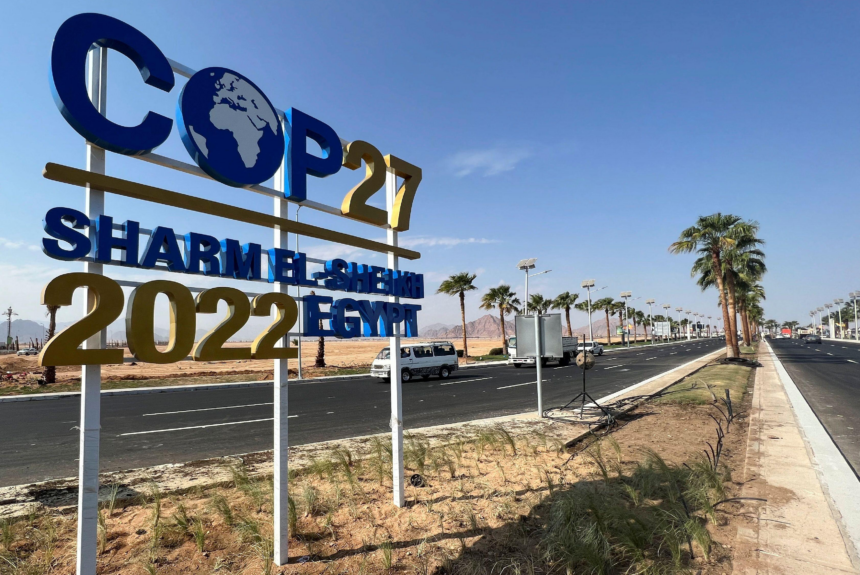COP27 kicks off in Sharm el Sheikh, Egypt this week, and several world leaders have echoed alarmist rhetoric that is all too common in the climate world. UN Secretary-General António Guterres warned that the world is on a highway to climate hell and that “humanity has a choice: cooperate or perish.” Communicating the urgency to address climate change is one thing, but unfounded doomism is counterproductive.
Not only does doomism at COP27 elicit defeatism, but it also fails to accurately communicate the risks of climate change, ignores the progress made and minimizes opportunities to build on that progress.
>>>READ: Bono is Right: Commerce is Good for People and the Planet
For instance, though some climate scientists have been making this point for years, it has become clearer among the broader scientific community that the most extreme climate scenarios are increasingly improbable. As David Wallace-Wells recently wrote in the New York Times, “[W]orst-case temperature scenarios that recently seemed plausible now look much less so, which is inarguably good news and, in a time of climate panic and despair, a truly underappreciated sign of genuine and world-shaping progress.”
That is not to suggest we can pat ourselves on the back and go home, nor does it suggest that a world 2 to 3 degrees Celsius warmer because of anthropogenic warming will be costless. Far from it. Nevertheless, claims of imminent climate apocalypse is science denial.
Further, it is important to understand how and why that world-shaping progress came about in order to guide future successes. Wallace-Wells’ piece underscores the importance of technology, markets, and public policy. Horizontal drilling and hydraulic fracturing are the reasons the United States is a global leader in emissions reductions. The cost of wind, solar, and battery technologies have fallen dramatically. Market signals have driven innovators in the energy, agricultural and manufacturing industries to increase outputs with a smaller environmental footprint.
Technological innovation, competitive markets, and sound public policy will be critical for improving human welfare and for climate mitigation. As new technologies emerge, public policy should steer clear of picking winners and losers and instead open markets to increase opportunities, reduce costs, and build efficiently. Future progress won’t come from telling people what to eat or how many kids to have, but instead by bringing cheaper, greener products to the market that consumers want.
Progress has also come in the form of adaptation. Whether it is the availability of affordable air conditioning, dependable heat, or resilient infrastructure, economic growth has improved our ability to prevent fatalities from natural disasters.
While climate finance for adaptation projects will help protect vulnerable communities in developing countries, more sustainable protection from natural disasters will best be achieved by policies that enable humans to flourish. Conversely, bad policy exacerbates the risks and costs of extreme weather. Poor planning, overly burdensome permitting timelines, socialized risk, and failed coordination misallocates resources and inhibits the ability of communities to adequately prepare and respond to natural disasters.
As policymakers from around the world deliberate over the next two weeks, there will be lofty goals for targets, financing and expectations. Over the course of the next two weeks, there will be a level setting of expectations, and economic and political realities will once again set in. Pundits and cynics will once again label COP27 as a failure. In fact, “success” is a word rarely associated with COP.
>>>READ: 6 Takeaways from COP26
Alternatively, world leaders can redefine what success looks like by leaning into the principles and policies that spurred the economic and environmental progress the world has already made. Reforms that unleash innovation, investment, and trade will increase and diversify energy supplies, reduce emissions, restore natural ecosystems, and build more resilient communities.
The United States should demonstrate international leadership by accelerating innovation domestically and opening markets to investment and trade. The reality is that climate change is a wicked problem and any conversation about solutions must be global in nature. Reducing energy poverty, increasing economic well-being, and reducing the risks and costs of climate change are interdependent goals. The third goal won’t happen if it fails to coincide with the first two. The sooner our global leaders at COP27 recognize and embrace this, the better our planet will be for current and future generations.
The views and opinions expressed are those of the author’s and do not necessarily reflect the official policy or position of C3.
